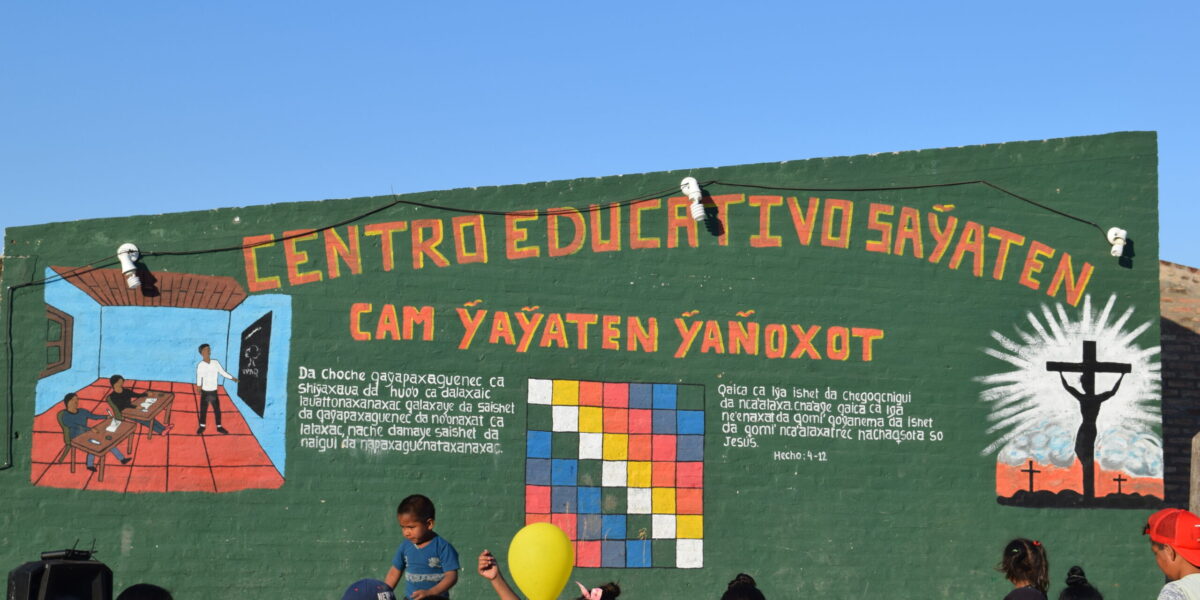J. J. CASTELLI, Argentina (Mennonite Mission Network) – Bilingual education for indigenous youth in northern Argentina has been key to opening doors to more opportunities. The model not only integrates their language, but also their worldview. Specifically, in the Toba-Qom community in Castelli, Argentina, Mennonite Mission Network workers have found creative ways to support this education model.
Germán Díaz, director of Educación Bilingue e Intercultural (EBI, Bilingual and Intercultural Education), explained that bilingual curriculum aims to help indigenous youth throughout the Argentine Chaco to become bridges of professional services to their communities.
"Bilingual education returns to the root of our community’s culture," said Díaz. "What we want is to incorporate indigenous culture and worldview into the primary, secondary and tertiary levels of education. So even as a professional, I can speak to anyone in our language and in the culturally appropriate ways."
In the roughly 18 years it takes the average student to complete the government’s standard education, indigenous youth previously might never have encountered any cultural aspect that relates to their context, said Díaz. Now, the regional education has accepted the mandate for bilingual education for indigenous children. The need for bilingual teachers and aides has opened opportunities for employment, especially for indigenous young adults.
Alfonsina and José Oyanguren, Mennonite Mission Network workers, have lived and worked in Castelli, Argentina, since 2004. They collaborate with indigenous partners in promoting the use of the Bible and other resources in indigenous languages, education initiatives, and community development, including a Qom radio station. Since 2013, they have expanded the use of the Centro Educativo Qom Saỹaten (Qom Knowledge Education Center) where the Bible Institute functions to also work with the public-school system to offer indigenous young adults accelerated secondary education classes in the evenings. With a high school degree, they can then enroll in the program to become bilingual teachers, assistants, or pursue other higher education goals.
José Oyanguren explained the center’s unique place in the community, while a zealous announcer shouted raffle-winning numbers over a megaphone and children responded with excited clamoring. It happened to be Argentina’s National Children’s Day and the city chose the center to be their location of celebration.
"We’ve opened up the center to all youth in the Toba-Qom community," said José Oyanguren. "Some church-affiliated programs might require that they be part of the church to participate, but we haven’t done that, and we’ve experienced great care of the facilities on the part of all of our students."
In the past year, the education center has had 55 current students, and since its founding, approximately 80 total graduates from its program. Out of those who have graduated, at least 60 are known to have gone on to pursue more professional training or higher education.
"Some are now working in hospitals, becoming teachers or teacher assistants," said Oyanguren. "The youth who have chosen to go through our program come out with different aspirations."







